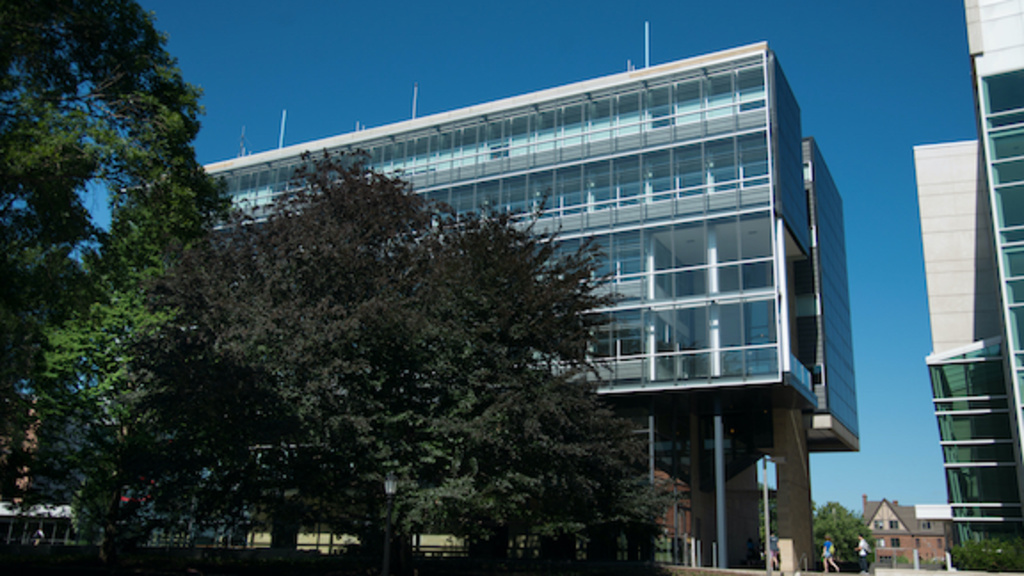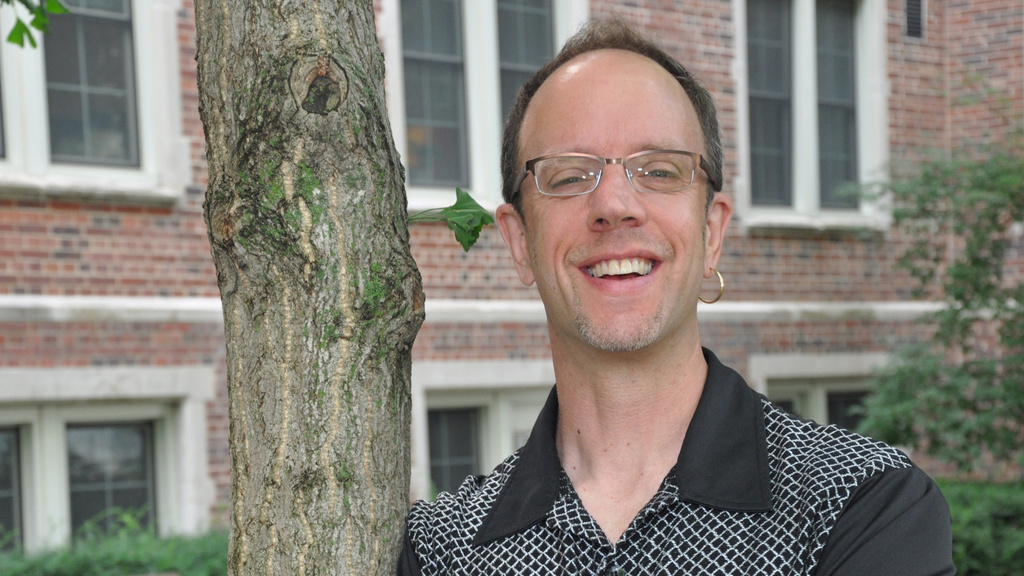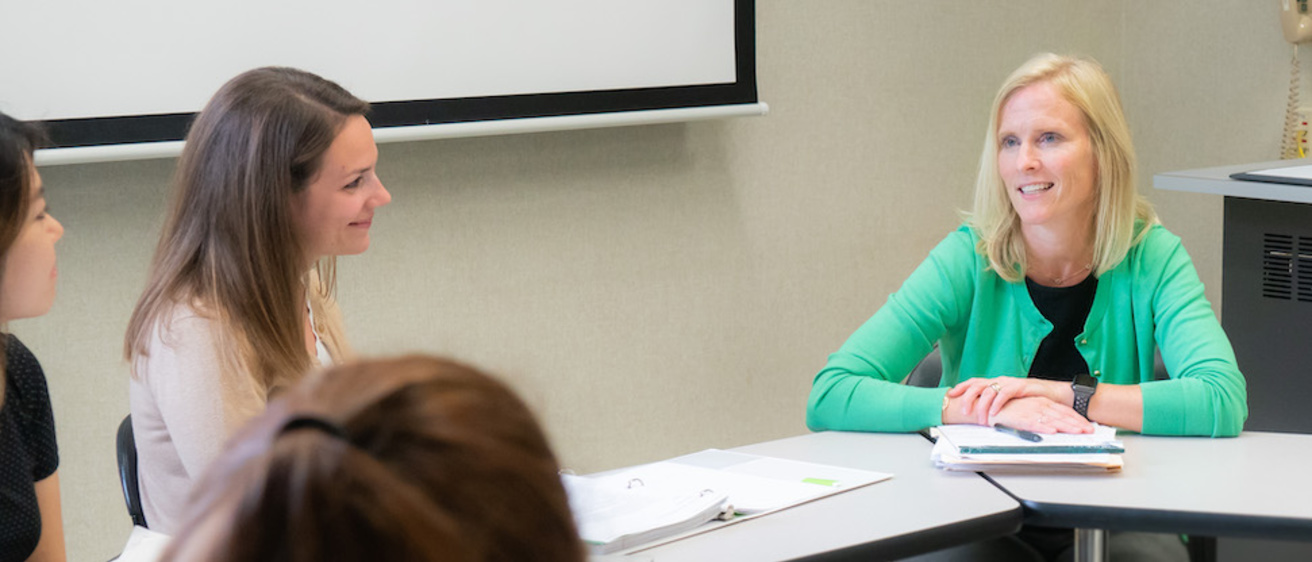The Counseling Psychology PhD program is committed to training psychologists who are competent in counseling and psychological services informed by the integration of diverse community engaged practice and scholarship.
Accredited by the American Psychological Association since 1980, our program strives to produce counseling psychologists who promote psychology as both a profession and a science and who apply acquired skills to the advancement of the human condition across local, national and global communities. Graduates find positions in a variety of settings, including higher education, counseling centers, clinics, private practice settings, and hospitals.
PhD Program Overview
Students complete course work in each of the following areas: research, basic psychology, counseling psychology core competencies, and electives. Additional training is obtained through a practicum sequence, research team membership, completion of a dissertation, and a full-year predoctoral internship. The program requires a minimum of 103 semester hours that includes 12 dissertation semester hours to complete. The program requires full-time study.
Practicum and Training
Practicum provides experiences in individual, conjoint, and group counseling/psychotherapy; assessment; and outreach and prevention. Depending on the site, students may gain experience in working with persons who are experiencing substance abuse, marital and family problems, rehabilitation and health concerns, developmental problems, neuropsychological assessment, and severe psychopathology. Furthermore, the clientele across sites present a diversity in age, ethnicity, affectional/sexual orientation, and educational level. Our program is committed to training psychologists to be competent in their work with these diverse populations.
Additional information and resources are available here: practicum and training information.
Internships
Students spend a calendar year in an internship setting approved by the counseling psychology faculty. The faculty determines student readiness to apply for the internship based on completion of all required coursework, successful defense of comprehensive exams, and successful completion of practicum requirements. Internships usually require geographic relocation.
Faculty and Research
Counseling Psychology faculty believe in community engagement that integrates psychotherapy, assessment, research, teaching, and consultation in a reciprocal partnership with the community to advance scholarship and promote psychological well-being for individuals, communities, and the larger society. Training opportunities are available through current grants and established collaboratives and centers in numerous fields.
To see associated faculty, please: Visit Faculty Listing
Areas of expertise include:
-
Career and Work Psychology
-
Economic justice
-
Opioid Addiction
-
Positive Psychology and Humility
-
Psychotherapy
-
Rural Medicine and Behavioral Health
-
Talent Development
-
Tele-psychology
-
Twice-exceptionality

Rural Psychology Collaborative
The Rural Psychology Collaborative seeks to increase access to psychological services for rural Iowans through partnerships with rural communities throughout the state of Iowa.

Belin-Blank Center
The Belin-Blank International Center for Gifted Education and Talent Development is a comprehensive center focused on nurturing potential and inspiring excellence through myriad programs and services.
Admissions and Application
Admission to the program is very competitive. Typically, only 8 to 10 students are admitted each year from a pool of about 80 applicants.
All students must begin their program of study during the first fall semester after admission. It should be noted that since the counseling psychology program is full-time, students cannot complete it on a part-time basis. Students may enter the program with either a bachelor's or a master's degree.
Students begin the program in the fall. Application deadline is Dec. 1. Applicants are invited for interviews in February, and admission decisions are usually made by March 1.
Admission Requirements
- A bachelor’s degree from a Regionally Accredited American College or University, or an equivalent degree from another country as determined by the Office of Admissions
- Undergraduate grade-point average (GPA) of 3.00 or better on a four-point scale
- Graduate GPA or 3.50 or better on a four-point scale
- The GRE requirement* is optional. Preferred Graduate Record Exam (GRE) scores (the score indicated or higher): Verbal = 152, Quantitative = 151, and Analytical Writing = 3.5
*Please note that the GRE is not required for graduate assistantships, teaching assistantships, or research assistantships within the College of Education, nor is it required for Graduate College fellowships. The GRE is a requirement for Special Graduate Assistantships (SGAs) offered through the Iowa Measurement and Research Foundation.
- English Proficiency Requirements (international applicants)
There is a $60 application fee for students residing in the United States. There is a $100 application fee for international applicants.
Required Supplemental Requirements
- Copies of official transcripts of all previous college work - graduate and undergraduate
- Statement of student's reasons for seeking advanced training as a counseling psychologist, including a statement of personal career objectives
- A vita or resume
- Completed Disclosure Statement
- Official TOEFL scores may be required for some non-native speakers of English
- Three letters of recommendation. You will be asked to give the contact information of your recommenders, including their email, on your Admissions Profile. The recommender will then get an email with instructions on how to upload the recommendation letter and/or form.
Funding
General Financial Aid: Please contact the Office of Student Financial Aid, 208 Calvin Hall, 319/335/1450. Apply for general financial aid at the same time that you apply for admission to our doctoral program.
Special graduate assistantships are open to graduate students pursuing any advanced degree program offered by the College of Education. These assistantships are half-time appointments (20 hours) that carry a stipend and a waiver of the nonresident portion of tuition. They are awarded to students with outstanding academic records. During the assistantship, students pursue both individual and collaborative research projects with a faculty adviser. These appointments are renewable, although no summer support is available through this program. The application must be filed on a special form that you should obtain now. Write to the Chair of the Selection Committee, 334 Lindquist Center, The University of Iowa, Iowa City, IA 52242-1529, 319/335-6010. The deadline for completed application for these special graduate assistantships is March 1. Students should file these applications at the same time that they apply for admission to our doctoral program.
In the past, most graduate students in counseling psychology desiring financial support have received it for a major portion of their graduate program. Sources of funding include teaching and research assistantships, graduate assistantships with a variety of service agencies, and professional employment in other areas of the University or community. In addition, students are nominated for various University Fellowships. During the past two years, about 70 percent of our entering class have received financial support. All employment is undertaken after consultation with, and approval from, the major adviser.
Additional funding opportunities and information:
Additional Information
Prospective students will be selected to attend an open house interview day as part of our admissions process. The open house interview typically happens during February. Following the interview day, students will be notified of either being accepted, put on an alternate list, or not accepted. During the interview, you will have an opportunity to have many of your questions answered, take a tour of the campus and the University Counseling Service, and meet with individual faculty. More information about the interview will be provided to invited applicants.
Background Checks
Prospective students need to be aware that doctoral students in the counseling psychology program are regularly placed into various practicum settings. In some of these settings, such as the University of Iowa Hospitals and Clinics or when working with children, criminal background checks are required, and a fee is assessed to the student for the background check. If a positive result is determined on a criminal background check, the program must refer the case to a College of Education committee for a final determination of suitability for practicum placement.
Student Disclosure of Personal Information and Personal Therapy
In accordance to the American Psychological Association (APA, 2002) ethics code 7.04 (Student Disclosure of Personal Information) and 7.05 (Mandatory Individual or Group Therapy), our counseling psychology program is making prospective students aware of the following:
Prospective students need to be aware that doctoral students in the counseling psychology program are enrolled in some courses that may necessitate the disclosure of some personal information as part of the process of the class. For instance, in supervision or a psychotherapy course, students may be asked to discuss personal issues relevant to the student’s learning of a particular concept or process of therapy.
We certainly support and encourage all students to have personal experiences in therapy as a client. Although we do not mandate therapy for all students in our program, in certain instances, some students may be encouraged to pursue personal therapy and counseling. Typically, students are encouraged to seek out therapy and counseling if (a) they are experiencing personal concerns significant enough to impact their academic performance; (b) they are experiencing personal concerns significant enough to impair their clinical responsibilities; (c) they are interested in the personal growth and the experience of therapy.
However, in some other instances, if the faculty deems it necessary, students may be mandated to seek counseling and therapy if the personal issue or concern is significantly impairing their academic and counseling responsibilities. In these instances, the student will work closely with their advisor and the faculty to find appropriate accommodations.
Apply Now
Please review the required supplemental documents above before starting the general graduate application. To begin the application process, set up an account with an existing email address and password
Request Information
News

In the news: Schreier contributes to UI’s new mental health training
Clinical Professor Barry Schreier, director of higher education programming in the Scanlan Center for School Mental Health, was heavily involved in the creation of C.A.R.E.S.: Connect, Acknowledge, Respond, Engage, and Support—a new mental health and well-being series for undergraduates at Iowa.

Case receives additional NSF funding to advance STEM-based outreach
Counseling Psychology Associate Professor Amanda Case was recently awarded supplemental funding from the National Science Foundation as part of the organization’s 2025 STEM Day.

Ali selected as UI Distinguished Chair
Counseling Psychology Professor Saba Ali has been selected as a 2025 University of Iowa Distinguished Chair, one of the highest honors bestowed on UI faculty.
Program Resources
Student Handbooks
Please refer to the Handbook of the year you entered the program for the policies which most likely pertain to you.
More Program Information
The Counseling Psychology Doctoral Program at the University of Iowa has been accredited by the American Psychological Association since 1980 (APA Committee on Accreditation, 750 1st Street N.E., Washington, D.C. 20002-4242. Phone 202/336-5000). Our primary aim is to train students in both the science and practice of counseling psychology. Because we are a doctoral program, no masters degree is offered.
The program has a long history of faculty and student achievement. Our faculty members are committed to excellence in teaching, research, and service, and they are among the national leaders in the field of counseling psychology. Our students have gone on to a variety of positions nationwide. They are contributing to many areas of the field.
The College of Education is also rich in history with a wealth of achievements. This section will provide beneficial information concerning (a) the College of Education, (b) the Department of Psychological and Quantitative Foundations, and (c) the Counseling Psychology Program. We hope that this information will be useful to you and that you will contact us for additional information
Definition of Counseling Psychology
Counseling psychology, as an applied psychological specialty, has historical roots in vocational guidance, the mental hygiene movement, and early efforts to facilitate emotional adjustment. A definition of counseling psychology, adopted by the Executive Committee of Division 17 (the Division of Counseling Psychology of the American Psychological Association) in 1983, is as follows:
Definition
Counseling Psychology is a general practice and health service provider specialty in professional psychology. It focuses on personal and interpersonal functioning across the life span and on emotional, social, vocational, educational, health-related, development, and organizational concerns. Counseling psychology centers on typical or normal developmental issues as well as atypical or normal development as it applies to human experience from individual, family, group, systems and organizational perspectives. Counseling psychologists help people with physical, emotional, and mental disorders improve well-being, alleviate distress and maladjustment, and resolve crises. In addition, practitioners in this professional specialty provide assessment, diagnosis, and treatment of psychopathology.
It has been our experience, that many entering students are unclear about the differences between counseling psychology and other subfields of psychology, namely clinical psychology. It is important to point out that there are certainly more similarities than differences between the two subfields. However, some aspects that are unique to Counseling Psychology include the importance placed on the client's environment and experiences throughout their lifespan, a strong commitment to multiculturalism in teaching, research, and practice, a focus on vocation in teaching, research and in practice, and an emphasis on identifying and developing personal and social resources and helping clients make more effective use of them (aka a strengths-based approach).
With regard to careers that can be obtained by those graduating with a degree in counseling psychology, there are, again, few differences between clinical and counseling psychology. Counseling psychology graduates currently occupy positions in teaching, research, practice, administration, etc. Many occupy positions in university counseling centers and independent practice. For a listing of those positions held by graduates of our Counseling Psychology program please consult the Initial Job Placements section.
Program Overview
The Counseling Psychology Program at The University of Iowa was granted full accreditation by the American Psychological Association in the spring of 1983 (APA Committee on Accreditation, 750 1st Street, N.D., Washington, D.C. 20002-4242. (202) 336-5000). It is a doctoral program; no master's degree is offered. The program's primary goal is to train students to achieve competency in providing a wide range of psychological services and in conducting research on a variety of psychological issues. To achieve this goal, the curriculum has been developed to integrate psychological theory, professional development, and research training. The program strives to produce counseling psychologists who promote psychology as both a profession and a science and who apply acquired skills to the advancement of the human condition. Given our belief that the profession of psychology is constantly changing to meet human needs, our faculty and students represent the provision of traditional counseling approaches as well as a variety of innovative services.
Commitment to Multiculturalism
The Counseling Psychology Program is highly committed to a multicultural education environment. Many faculty and students conduct research on current multicultural issues. Further, our program offers a required multicultural counseling course, an advanced multicultural counseling seminar, multiple electives concerning issues of multiculturalism, and finally multicultural issues are integrated throughout most of our courses. It is our hope that such an emphasis will better prepare our students to meet the needs of our culturally diverse society.
For explicit information on culturally diverse programming, support and additional services in the Iowa City area, please consult the "University of Iowa and Surrounding Community" portion of the Diversity Highlights page within the University Counseling Services website.
Initial Job Placements
Upon graduation, our students obtain positions as faculty members, health service providers, private practitioners, counseling center staff members, and consultants. The following list represents the initial job placement locations of our graduates over the past years:
- Postdoctoral fellowship
- University/college faculty member
- University/college counseling centers
- Medical school faculty member
- VA Medical Centers
- Hospitals
- Community mental health centers
- Private practice
- Consultation business (e.g., IBM)
- Other (Armed Forces, nonprofit organizations)
Background Checks
Prospective students need to be aware that doctoral students in the counseling psychology program are regularly placed into various practicum settings. In some of these settings, such as the University of Iowa Hospitals and Clinics or when working with children, criminal background checks are required, and a fee is assessed to the student for the background check. If a positive result is determined on a criminal background check, the program must refer the case to a College of Education committee for a final determination of suitability for practicum placement.
STUDENT DISCLOSURE OF PERSONAL INFORMATION AND PERSONAL THERAPY
In accordance to the American Psychological Association (APA, 2002) ethics code 7.04 (Student Disclosure of Personal Information) and 7.05 (Mandatory Individual or Group Therapy), our counseling psychology program is making prospective students aware of the following:
Prospective students need to be aware that doctoral students in the counseling psychology program are enrolled in some courses that may necessitate the disclosure of some personal information as part of the process of the class. For instance, in supervision or a psychotherapy course, students may be asked to discuss personal issues relevant to the student’s learning of a particular concept or process of therapy.
We certainly support and encourage all students to have personal experiences in therapy as a client. Although we do not mandate therapy for all students in our program, in certain instances, some students may be encouraged to pursue personal therapy and counseling. Typically, students are encouraged to seek out therapy and counseling if (a) they are experiencing personal concerns significant enough to impact their academic performance; (b) they are experiencing personal concerns significant enough to impair their clinical responsibilities; (c) they are interested in the personal growth and the experience of therapy.
However, in some other instances, if the faculty deems it necessary, students may be mandated to seek counseling and therapy if the personal issue or concern is significantly impairing their academic and counseling responsibilities. In these instances, the student will work closely with their advisor and the faculty to find appropriate accommodations.
Program Forms
- Application for Internship
- Attachment A
- Doctoral Practicum Documentation
- Employment Endorsement
- Employment Form for those employed at the same site as practicum
- Internship Completion
- Policy on Student Ethical Misconduct, Problematic Behavior, Academic Performance and Competence
- Practicum Choice
- Practicum Site and Supervisor Evaluation
- Services Agreement between The University of Iowa Counseling Psychology Program and Practicum Site
- Waiver
Accreditation
The Counseling Psychology Doctoral Program at the University of Iowa has been accredited by the American Psychological Association since 1980. Questions related to the program’s accredited status should be directed to the Commission on Accreditation:
Office of Program Consultation and Accreditation
American Psychological Association
750 1st Street, NE, Washington, DC 20002
Phone: 202-336-5979
Email: apaaccred@apa.org
Web: www.apa.org/ed/accreditation
Contact Us
Julie Koch, Program Coordinator
361 Lindquist Center
julie-koch@uiowa.edu
Stacy McElroy-Heltzel, Admissions Coordinator
stacey-mcelroy-heltzel@uiowa.edu
We look forward to receiving your application!
